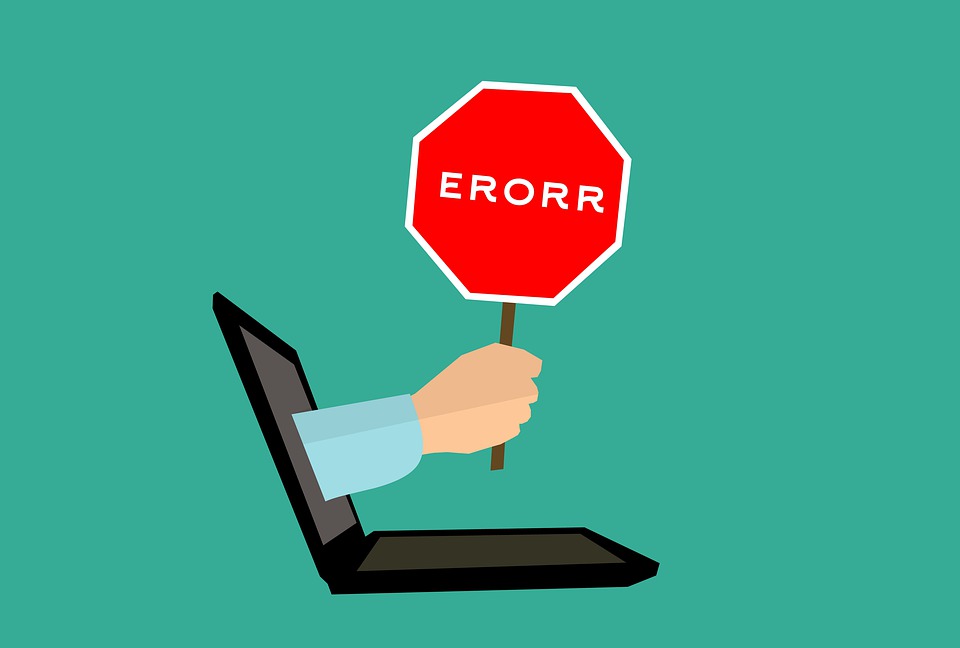Setbacks and disappointments, however much we might not want them to be, are a perfectly natural part of being a human in a working environment. However natural they might be though, this doesn’t always stop the negative effects translating into the individual or group involved and causing problems.
Below are 10 great ways, as chosen by leading experts, for recovering from setbacks and moving on with a greater sense of purpose and in a more fulfilled way.
Navigate the article
#1 ‘4 Step Plan’
The first thing to do is review the type and severity of the error. Most often the problem is not as big as we think it is at the time. If an employee misses a deadline, takes a calculated risk that doesn’t pan out, or simply makes a mistake, it’s most often easy to recover. Just follow these steps:
- Quickly admit the mistake
- Enact a plan to remedy the error and make those affected whole
- Develop a process to ensure it isn’t repeated
- And bonus points…. teach teammates so the lesson is adopted.
Contributor: Tim Toterhi from plotlineleadership.com
#2 Own The Problem, Offer The Solution
Own the problem whether you caused it or not, don't play the blame game and alienate your boss or coworkers. Offer the solution, offer a well thought out plan of action that solves the problem. Worst case scenario, you fail but gain respect as a level-headed reliable worker who people can trust.
Contributor: Justin March, Owner from justinmarch.com
#3 Don’t Hide Your Mistakes
For me, the most important step in the process is to accept and own up to the mistake. It's human nature to try and hide our failures or downplay their impact, but in the long run this can have some very negative implications. If we can't identify why something went wrong, we cannot begin to take steps to rectify it.
Being open about a mistake with others can be a very exposing and daunting prospect for some, but in sharing my negative experiences with others, I can actively work with them to rectify the issue as a team rather than an individual.
Contributor: Jon Hayes from authorityhacker.com
#4 Resulting Stress
One of the hardest things to deal with at work is setbacks and coping with the stress that follows. One of the best strategies I have developed over the last several years starts with starting from ground zero and working back up. What did we do right? What did we do wrong? What could improve? and taking our setback as motivation to improve in areas that could use some extra help.
Contributor: Michael Russell from ratchetstraps.com
#5 Brag About It
Brag about them. Not to a point of tedium. But let people know you made a mistake. Tell them what you did about it to correct the situation, what resulted, and what you learned from the situation, all with a good-natured tone of voice and facial expression.
Doing that you cause people to relate to you sooner/better as they too have made mistakes but feared telling anyone. You come across as confident not insecure and people like to be around confident. You share the lesson you learned so that you don’t repeat the setback and without “coaching” them you set an example they too can follow.
Contributor: Debra Benton from CEOwhisperer.com
#6 Appreciation
It might not have gone the way you wanted but, especially if you weren’t working alone, make sure to show appreciation to anyone who got you to this stage. Including yourself. Just because it resulted in a setback does not mean there was no hard work involved!
Contributor: Nate Masterson from mapleholistics.com
#7 Feedback
Once things have calmed down arrange a meeting with your boss to discuss the setback. This is important to show that you care about moving forward and raising your standards. Make sure to keep a positive open mind – nobody likes a Negative Nelly.
Contributor: Nate Masterson from mapleholistics.com
#8 Time Yourself Before Moving On
Put a conscious time limit on how long you let yourself wallow. It’s important to acknowledge your feelings in order to move on but make sure not to dwell. Moping at your desk wont won’t change what happened. Focus your energy on your progress from here.
Contributor: Nate Masterson from mapleholistics.com
#9 Don’t Be Hard On Yourself
Don’t be too tough on yourself – chances are you have accomplished a lot, so take a gentle approach with yourself, from a place of care and concern, just as you would for a friend. So many of our thoughts are our own self-talk – so be sure the language of your internal dialogue is positive.
Contributor: Katelyn Robertson from avirtual.co.uk
#10 Remember The Bigger Picture
Remember that chances are that you have a large number of years ahead of you in your career – so there is plenty of time to get things right. Some of our most powerful lessons come from setbacks and disappointment – so try and take a big-picture approach and be sure to learn from all experiences, both positive and negative.
Contributor: Katelyn Robertson from avirtual.co.uk
This post was created with our nice and easy submission form. Create your post!











